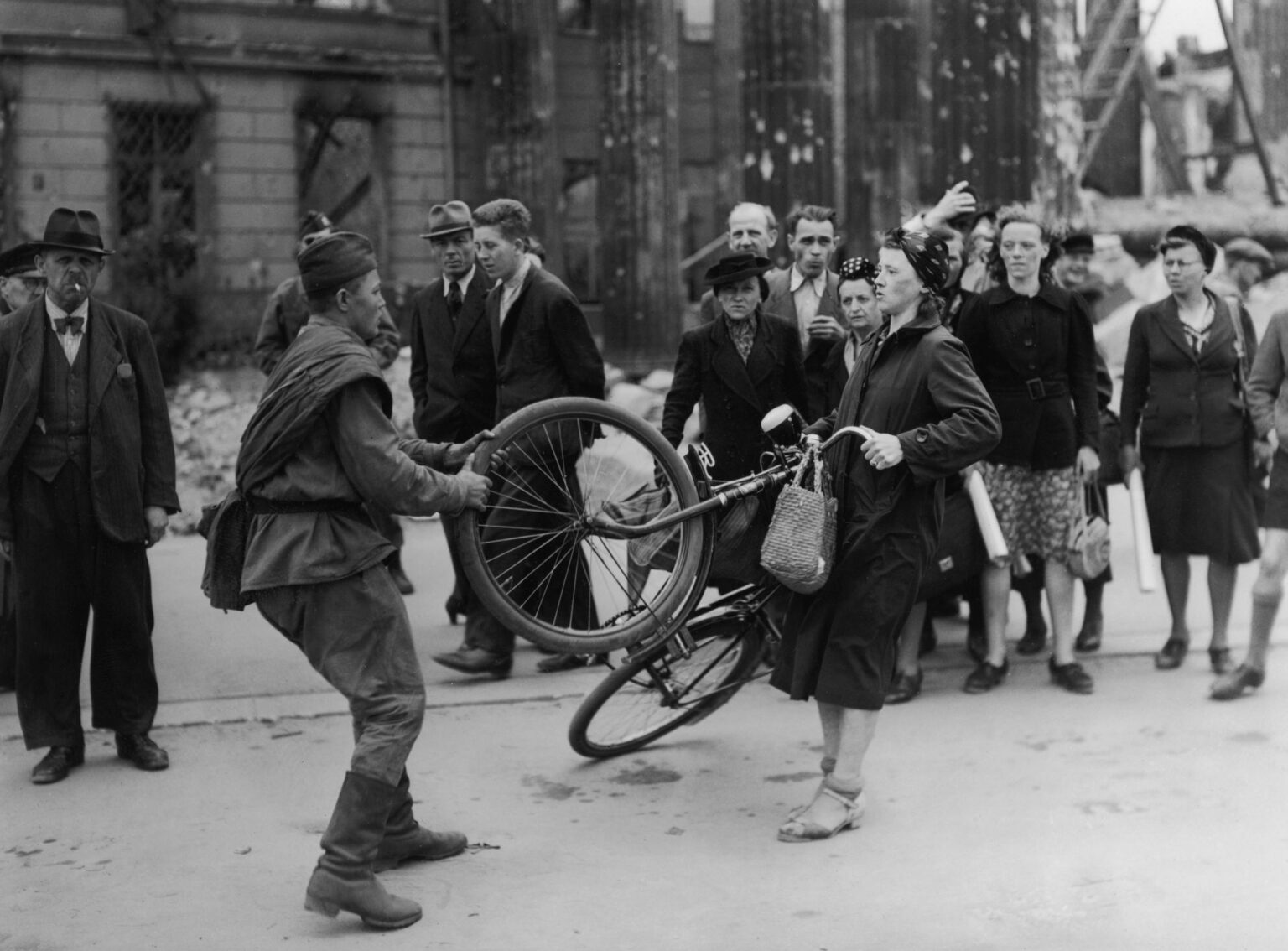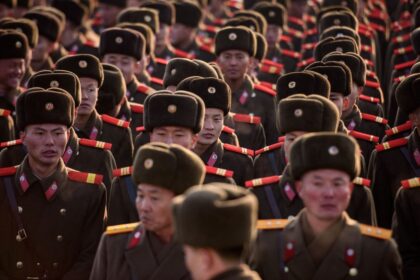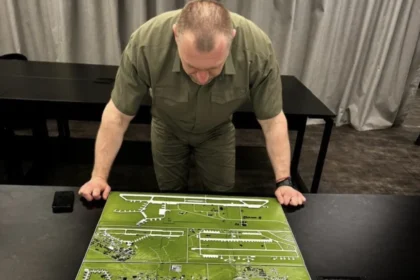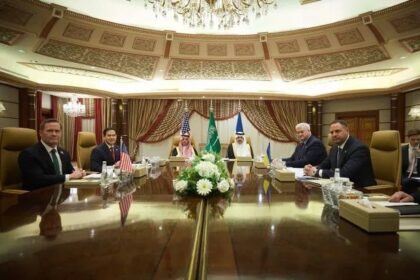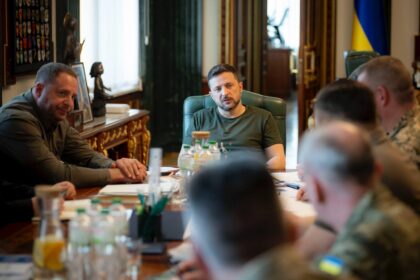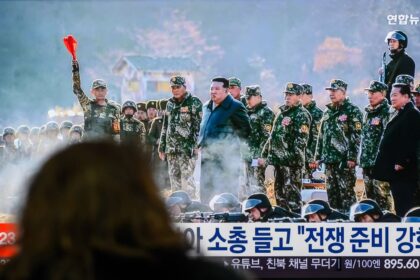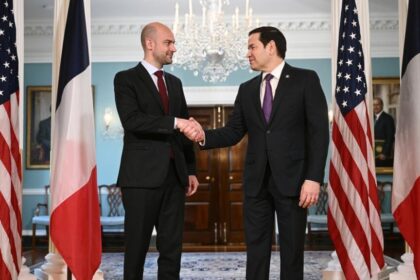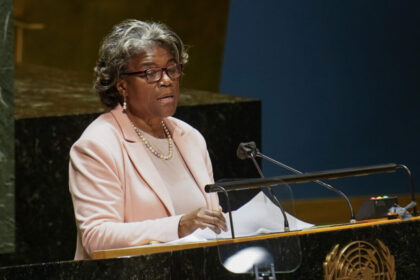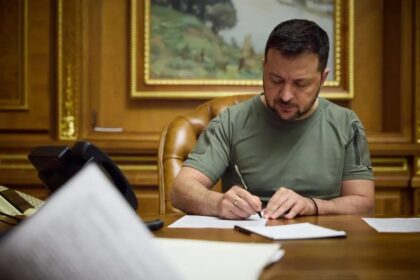**Russia’s Victory Day Parade: 5 Things Putin Conveniently Left Out**
Every year, Russian President Vladimir Putin delivers a speech to mark the country’s Victory Day parade. The event is a grand celebration of the Soviet Union’s role in defeating Nazi Germany in World War II. However, beneath the pomp and circumstance lies a distorted history that serves as a pretext for Russia’s aggression against Ukraine.
In an interview with The Kyiv Independent, historian Andrej Lushnycky highlighted five key points that Putin conveniently left out of his Victory Day speech. These omissions reveal the true nature of Putin’s propaganda efforts and the Kremlin’s manipulation of historical facts to justify its actions.
**1. The Forgotten Ukrainian Soldiers**
Putin hailed Soviet soldiers as heroes, but conveniently forgot to mention the hundreds of thousands of Ukrainians who fought in the Soviet army during World War II. Lushnycky pointed out that at least six million Ukrainians were part of the Red Army, and around 1.65 million were killed in action – a staggering number that dwarfs Russia’s own losses.
This omission is significant, as it downplays the sacrifices made by Ukrainian soldiers who fought on behalf of the Soviet Union. By erasing their contribution from history, Putin perpetuates a narrative that reinforces Russian dominance over Ukraine.
**2. The Molotov-Ribbentrop Pact and Nazi Collaboration**
Putin claimed that the Nazis’ plan to seize the Soviet Union was shattered by the country’s “iron unity.” However, this conveniently glosses over the fact that the Soviet Union collaborated with the Nazis in 1939 through the Molotov-Ribbentrop Pact. This pact paved the way for Nazi Germany and the Soviet Union to invade Poland just 17 days apart.
Lushnycky emphasized that Western armies fought as liberators, whereas the Soviet army was an occupying force during World War II. By ignoring this crucial aspect of history, Putin perpetuates a myth that Russia played a heroic role in defeating Nazism.
**3. The Misuse of Nazi Imagery**
Putin proclaimed that Russia has been and will be an “indestructible barrier to Nazism.” However, this statement is a masterful manipulation of language, as it allows Putin to associate Ukrainian resistance with the ideology of Nazi Germany. Lushnycky noted that this tactic serves to distract Russians from their country’s own authoritarian nature.
By conflating Russian nationalism with anti-Nazi sentiment, Putin distorts the true meaning of Nazism and its association with Russian aggression. This perversion of historical facts is a calculated move to maintain public support for his policies in Ukraine.
**4. The Role of Allies**
While Putin acknowledged the “contribution” of allied armies in defeating Nazi Germany, he downplayed their significance. Lushnycky pointed out that the United States’ lend-lease program provided the Soviet Union with $180 billion worth of arms, equipment, and food between 1941 and 1945 – a staggering sum that would have been impossible for Russia to achieve on its own.
By ignoring this crucial aspect of history, Putin perpetuates a myth that Russia single-handedly defeated Nazi Germany. This narrative reinforces the idea that Russia is a global superpower, deserving of recognition and respect from other nations.
**5. The Distortion of Events**
Putin concluded his speech by vowing to “remember the lessons of the Second World War” while condemning attempts to distort its events or justify the executioners. However, as Lushnycky noted, this statement is a thinly veiled attack on Ukraine’s efforts to preserve historical accuracy and expose Russia’s actions.
In reality, Putin’s Victory Day speech serves as a propaganda tool to justify Russian aggression in Ukraine. By distorting historical facts and manipulating language, Putin perpetuates a false narrative that maintains public support for his policies.




